With a record-breaking 691,100 Singaporeans visiting Japan in 2024 and continued interest in 2025, it’s essential to stay informed and prepared, especially in light of Japan’s recent influenza outbreak.
But don’t let this dampen your travel plans! Here’s a practical guide on what to do if you fall ill in Japan and how to take precautions before travelling — especially if you’re heading there for the beautiful cherry blossom season.
Also read: 8 New Japan Travel Tips in 2025 You Need to Know
1. Precautions before travelling to Japan
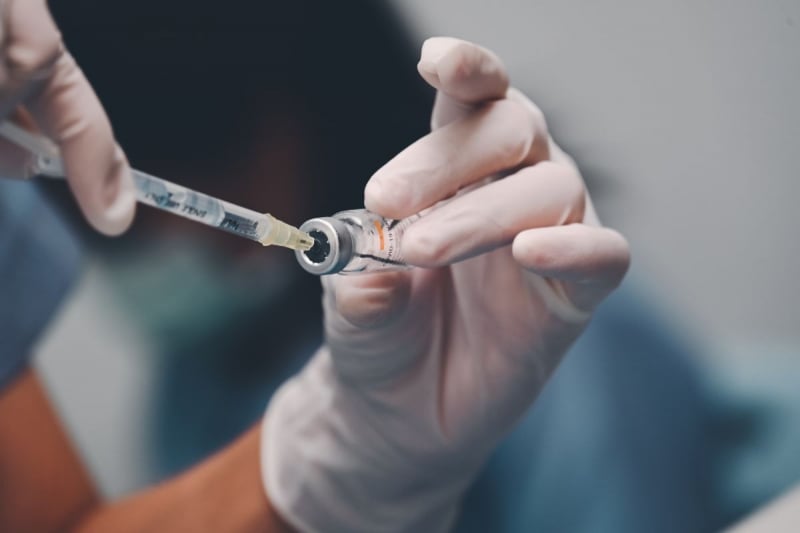
Image credit: ภาพของjes2ufoto via Canva Pro
Before embarking on your journey, it’s wise to take a few precautions to safeguard your health. One of the most effective ways to protect yourself is by getting vaccinated. If you haven’t already, consider getting the flu vaccine before your trip. It may not guarantee immunity, but it can significantly reduce the severity of symptoms if you do catch the flu.
Additionally, packing essential medications is a must. Consider bringing vitamins and antihistamines to stop symptoms should you have them. Consult with your doctor to determine the best options for you.
Equally important is ensuring that your travel insurance includes medical coverage. In light of the current situation, having insurance that covers medical expenses, including doctor visits and hospitalisations in Japan, can provide much-needed peace of mind.
2. Download useful Japanese apps
When travelling to Japan, having the right apps on your phone can make a big difference in staying healthy and hydrated.
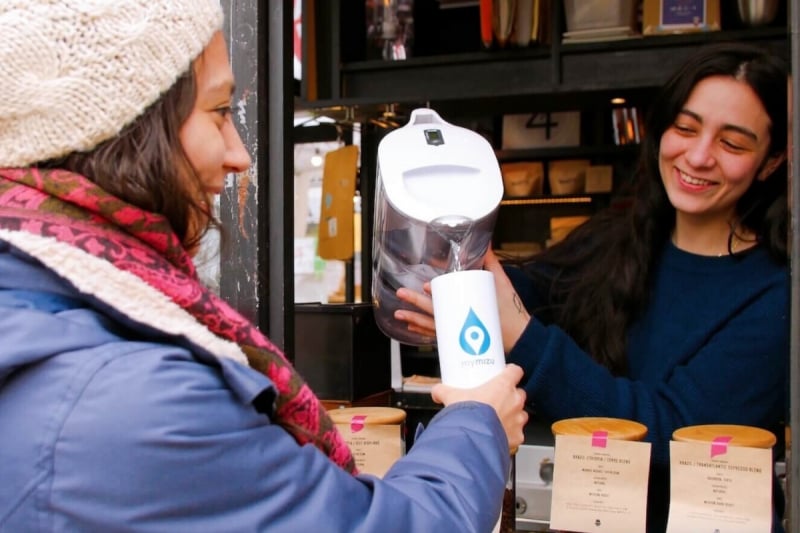
Image credit: MyMizu | Official Website
One useful app to download is MyMizu, which helps you find the nearest water refill stations around Japan. This allows you to stay hydrated without constantly buying bottled water, which is not only good for your health but also the environment.
Other helpful apps include the Japan Hospital Guide to locate nearby hospitals and clinics with English-speaking staff and the Japan Visitor Hotline app, which provides multilingual support for tourists in need of medical assistance.
3. Staying healthy while in Japan
Once you’ve arrived in Japan, maintaining good health requires some mindful practices.
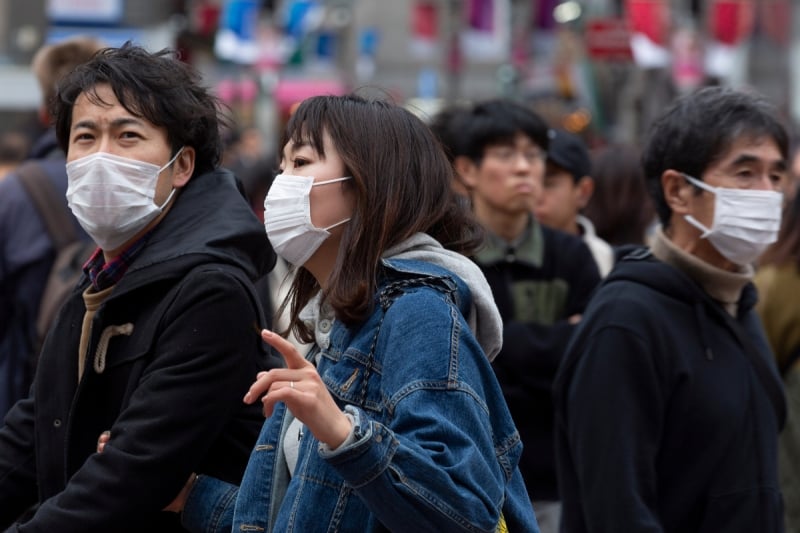
Image credit: Rodrigo Reyes Marín via Canva Pro
In Japan, wearing masks is a common courtesy and an effective way to reduce the spread of illnesses, particularly during flu season. While regular surgical masks can provide basic protection, opting for high-quality masks such as KF94 or N95 offers better filtration and a more secure fit, enhancing your protection against airborne viruses.
Practicing good hygiene is also crucial. Wash your hands frequently with soap and water, and carry a hand sanitiser for use when soap is unavailable. Try to avoid touching your face, especially in crowded places.

Image credit: Bruno Coelho via Canva Pro
Speaking of crowded places, it’s wise to avoid them as much as possible. Japan’s popular tourist spots can get extremely busy, especially during peak travel seasons like cherry blossom season. If you’re planning to visit these attractions, consider going during off-peak hours such as early in the day or later at night to minimise your exposure to large crowds.
Also read: Where To See The Early Winter Cherry Blossoms Around Japan Before April
5. What to do if you start to feel sick in Japan
If you start to feel unwell during your trip, don’t panic. The first thing to do is rest and stay hydrated. Drinking plenty of fluids and giving your body time to recover can help you feel better faster.

Image credit: Japan Photos via Canva Pro
If your symptoms are mild, you may want to visit one of the many pharmacies in Japan, known locally as drugstores (ドラッグストア). Chains like Matsumoto Kiyoshi and Tsuruha Drug are widely available and carry a variety of over-the-counter flu medications.
6. Where to get medical help in Japan
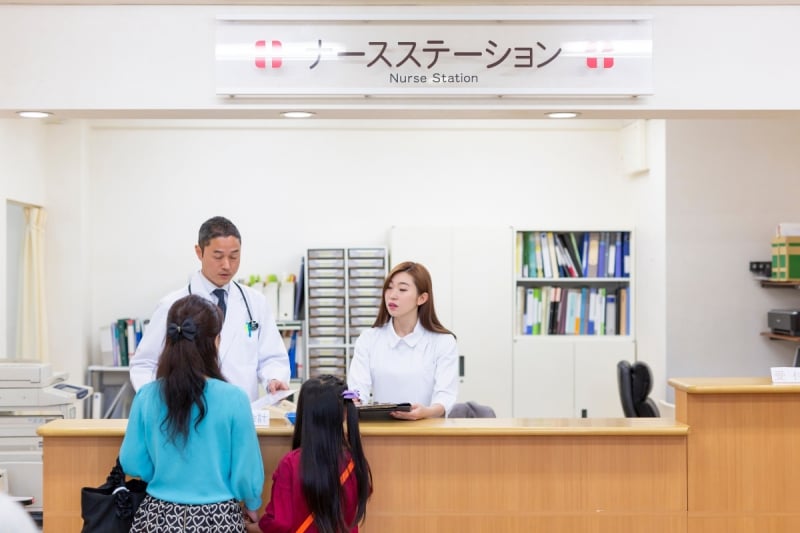
Image credit: davidf via Canva Pro
However, if your symptoms worsen or you are concerned about your health, it is important to seek medical attention. To find nearby hospitals and clinics with English-speaking staff, consider using apps like the ‘Japan Hospital Guide.’
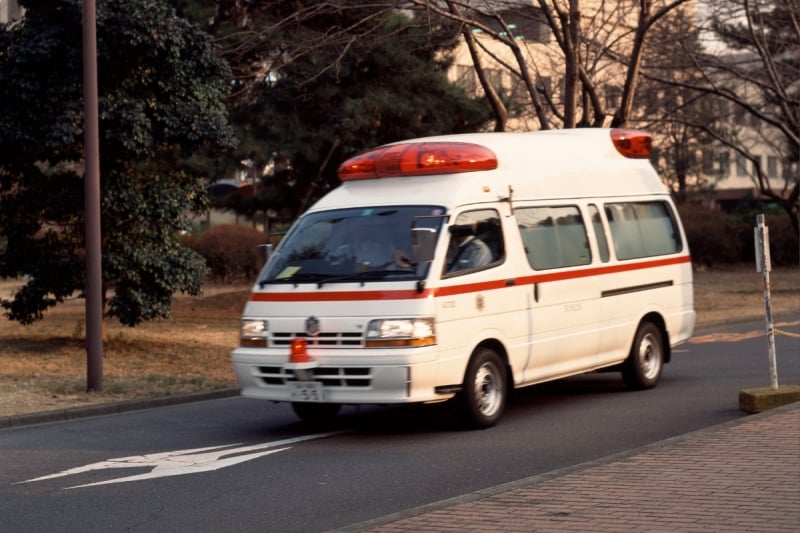
Image credit: gyro via Canva Pro
If you require emergency services, dial 119 for an ambulance. Additionally, the Japan Visitor Hotline (050-3816-2787) provides multilingual support for tourists in need of medical assistance.
7. Monitor your health after returning home

Image credit: mahroch via Canva Pro
After returning from Japan, it’s essential to monitor your health closely. If you experience any lingering symptoms or feel unwell, visit a healthcare professional and be sure to inform them about your recent travel history. This helps healthcare providers offer the most accurate diagnosis and appropriate treatment.
Also read: What to Eat in Japan: 23 Must-Try Foods Other Than Sushi
While the influenza outbreak in Japan is concerning, it doesn’t mean you need to cancel your trip. By taking necessary precautions, staying vigilant, and knowing what to do if you fall sick, you can still have a safe and enjoyable holiday in Japan.





